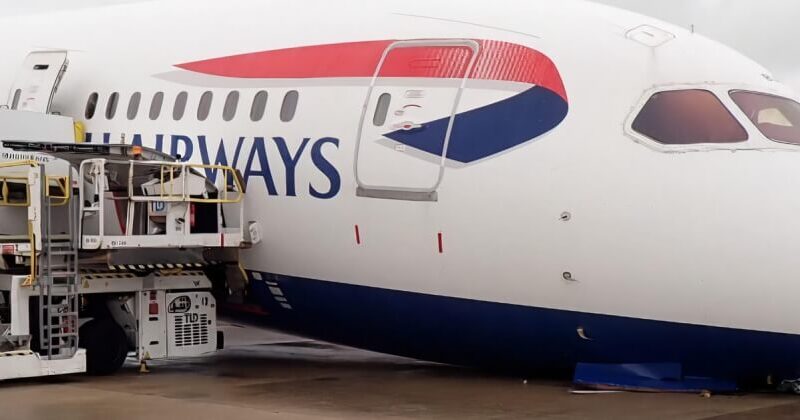British Airways plans to accelerate a security fix to avoid the repetition of a nose-gear retraction incident that damaged one of its Boeing 787-8s, at London Heathrow Airport.
The investigating authorities of the United Kingdom are yet to complete their assessment regarding the factors that lead to the incident on July 18, 2021, but have speculated it to be related to the misplaced insertion of a nose-gear locking pin that led to the gear retraction.
Although the inquiry is yet to reach a verdict on the human factor and environmental factor contribution, it identifies the failure of the nose gear pin as the main cause for the incident.
Similar errors were observed on other occasions as well.
Ethiopian Airlines 787-8s suffered one of the first similar incidents where the nose gear accidentally retracted at Addis Ababa Bole International Airport in March 2016. The aircraft reportedly suffered significant damage, and the passengers suffered minor injuries. However, the clarity around the incident report was vague where Boeing claimed “lack of ground lock installation” to the Federal Aviation Authorities (FAA) to be the leading cause in-effect. The FAA disputed the claim after finding conflicting information suggesting the wrong insertion of the nose-gear pin.
The second occurrence of a similar incident occurred in March 2018, when the 787-8 of an undisclosed carrier experienced an ordeal retraction of the nose gear on the ground while undergoing maintenance testing at a US facility in Grant County Airport, Washington. The incident resulted in substantial structural damage to the front fuselage of the aircraft. The incident was attributed to the misidentification of the nose-gear retraction lock pin’s point.
The FAA proposed an injunction that mandated Boeing to facilitate and implement a solution. Boeing devised a probable remedy with a cotter pin. But it was later debated not to be a long term solution and lacked robustness. Therefore, the FAA directive mandated airlines to implement the Boeing fix from mid-January 2020 and provided operators with a three-year compliance deadline.
Unfortunately, the aircraft involved in the incident on July 18, 2021 had not undergone modification and endured massive damage.
In the aftermath of the incident, British Airways plans to expedite implementing the modification in their Boeing 787-8s.

